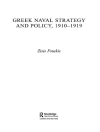From the Civil War to the Great War, the transatlantic commercial trading system that dated from the nation’s colonial times continued in America. By 1900, the sustainability of this Atlantic System was in the material interest of an industrial America on which its aggregate national prosperity depended. The principal beneficiary of this political-economic reality was the American moneyed interest centered in the Northeast, with New York City at the heart.
Author John Fass Morton explains how this country came to put a value on commercial opportunities overseas in support of America’s steel industry. Europeans and Americans alike pursued informal empires for resource acquisition and markets for surplus capital and output. Morton looks at how U.S. policy found consensus around the idea of empire, taking stock of the opening of Latin American and Chinese markets to American commerce as a means for averting socially destabilizing economic depressions.
Republican administrations reflected Wall Street finance and America’s other three Madisonian interests—commercial, manufacturing, and agrarian—with the Open Door and Dollar Diplomacy policies to establish fiscal protectorates in Central America and the Caribbean. Undergirding Dollar Diplomacy was their commitment to “a great navy” that would be the “insurance” for an ongoing American interest that Dollar Diplomacy represented. With the strategic arrival of the petroleum sinew and the Wall Street reassessment of the Open Door in China, the Wilson administration tilted toward protecting American investments in the hemisphere—notably in Mexico—with a “Big Navy.” With Wilson, a progressive foreign policy establishment arrived while continuing to reflect the transatlantic internationalism of the Northeast moneyed interest. As a twentieth century progressive institution, the Navy would thus sustain an American expansion that was now progressive.
The Navy story from the Civil War to the Great War reveals a truth. The foundational and dynamic sectors of a great nation’s economic base—its sinews—give rise to policy consensus networks that drive national interest, long-term strategy, and the characteristics of its elements of national power. It follows that the attributes of sea power must be material expressions of those sinews, allowing a navy better to serve as a sustainable and actionable tool for a great nation’s interest.
Author John Fass Morton explains how this country came to put a value on commercial opportunities overseas in support of America’s steel industry. Europeans and Americans alike pursued informal empires for resource acquisition and markets for surplus capital and output. Morton looks at how U.S. policy found consensus around the idea of empire, taking stock of the opening of Latin American and Chinese markets to American commerce as a means for averting socially destabilizing economic depressions.
Republican administrations reflected Wall Street finance and America’s other three Madisonian interests—commercial, manufacturing, and agrarian—with the Open Door and Dollar Diplomacy policies to establish fiscal protectorates in Central America and the Caribbean. Undergirding Dollar Diplomacy was their commitment to “a great navy” that would be the “insurance” for an ongoing American interest that Dollar Diplomacy represented. With the strategic arrival of the petroleum sinew and the Wall Street reassessment of the Open Door in China, the Wilson administration tilted toward protecting American investments in the hemisphere—notably in Mexico—with a “Big Navy.” With Wilson, a progressive foreign policy establishment arrived while continuing to reflect the transatlantic internationalism of the Northeast moneyed interest. As a twentieth century progressive institution, the Navy would thus sustain an American expansion that was now progressive.
The Navy story from the Civil War to the Great War reveals a truth. The foundational and dynamic sectors of a great nation’s economic base—its sinews—give rise to policy consensus networks that drive national interest, long-term strategy, and the characteristics of its elements of national power. It follows that the attributes of sea power must be material expressions of those sinews, allowing a navy better to serve as a sustainable and actionable tool for a great nation’s interest.
Om författaren
John Fass Morton is the author of two previous U.S. Naval Institute Press books,Mustin: A Naval Family of the 20th Century, a title on the CNO’s Book List for Leadership and Management, and
Next-Generation Homeland Security: Network Federalism and the Course to National Preparedness. He has also authored
Backstory in Blue: Ellington at Newport ’56. For over 30 years, he was a Washington-based national and homeland security consultant, journalist and regular contributor to virtually every major defense publication, in addition to
Proceedings. He lives in Annapolis, Md.
Köp den här e-boken och få 1 till GRATIS!
Språk Engelska ● Formatera EPUB ● Sidor 392 ● ISBN 9781682479124 ● Filstorlek 13.3 MB ● Ålder 99-17 år ● Utgivare Naval Institute Press ● Publicerad 2024 ● Utgåva 1 ● Nedladdningsbara 24 månader ● Valuta EUR ● ID 9339251 ● Kopieringsskydd Adobe DRM
Kräver en DRM-kapabel e-läsare












